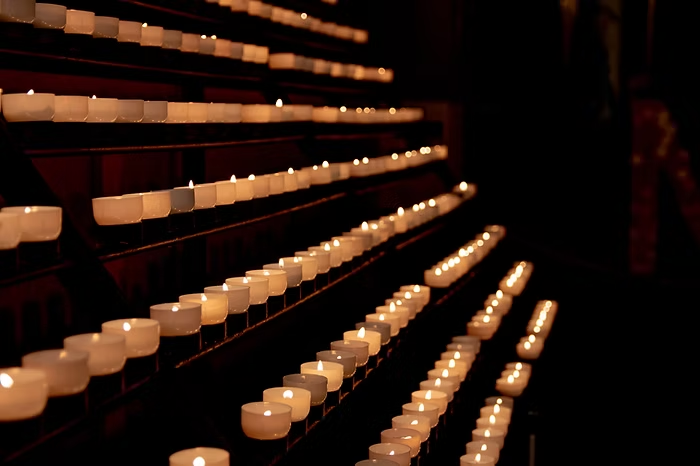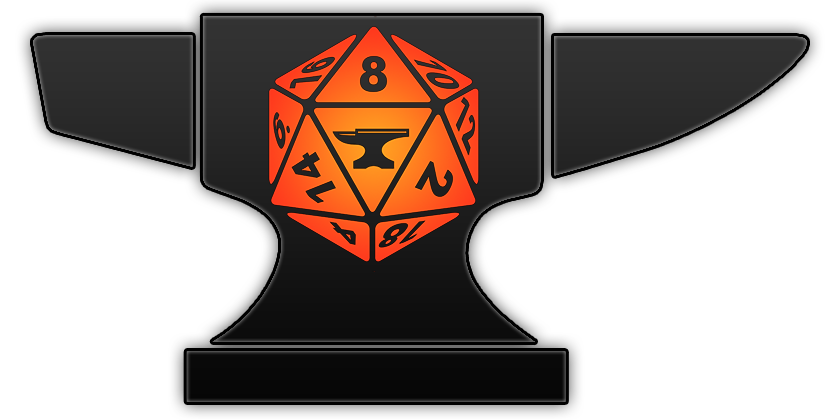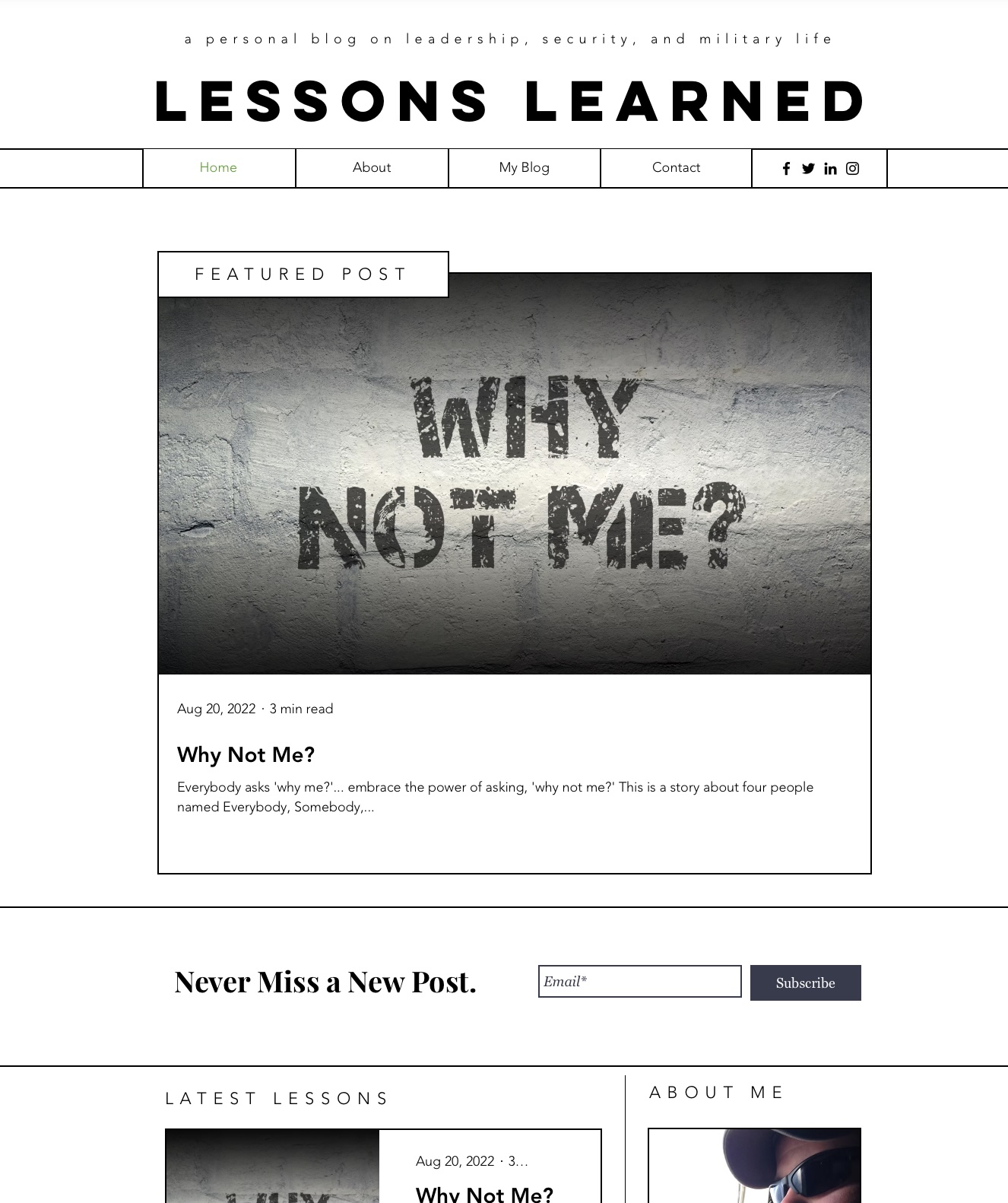Spirituality and resilience isn’t always about your church.
This concept is from the U.S. Air Force’s “Comprehensive Airmen Fitness” resiliency program. My examples and uses are my own.
When we come to hard decisions in life, everyone has a variety of techniques to deal with them. One of the most common is to talk to other people and to get their impression of things. Others will seek guidance from their internal values. Some will mix these two and consult another authority that they cannot contact via telephone that helps shape their values. That authority may sound like a religion, but it’s not restricted to just the faithful; anyone can take advantage of a spiritual resiliency. It boils down to two primary elements: 1) understand that you are part of a larger organization, and 2) deliberately build and consult your internal board of directors.

My Story
Coming into 2016, I have to admit that I was in a pretty rough spot. I had just finished a five-year assignment in the U.S. Air Force with a unit that asked a lot of me, my time, and my family. I had just arrived at a new assignment with a mission that was a bit more relaxed, an intentional move to give my family and I a bit of a break. Within a few months, a colleague asked me to get involved with the base resiliency program, explaining that I might have some helpful perspectives. By the end of the year, I was teaching a few courses each month and certified as a Master Resiliency Trainer. While I found all of the lessons useful and try to incorporate them into my daily life, one of my favorites was the spiritual lesson on your board of directors.
I will come out and say: as an atheist (not an anti-theist – I have tremendous respect for those who have found a faith that suits them), I was intensely skeptical of how I might learn about and instruct others on spiritual resilience. I was pleasantly surprised to learn about this approach and how it worked. It quickly became one of my favorite lessons to teach! For many folks, spirituality is a loaded term that either means religion or “new-age,” while this approach merely considers it as a belief in belonging to something bigger than yourself and an internal moral compass to drive you in positive directions.
When teaching to a mission-driven population like our Airmen, I found that finding something bigger to belong to wasn’t hard; it was organizationally intrinsic. I challenge you to consider what that sense of belonging means to you. Is there a family, community, or movement whose mission you feel a deep connection or bond to? Embrace that. If you don’t have that, think about what you want and actively seek one out. While a place of worship can satisfy it for some, it’s not the only thing that may; it’s a very personal thing.
The internal moral compass element was the part I really enjoyed. The program teaches this concept by stating that we each have an internal “board of directors.” Imagine that you are faced with a dilemma or challenge in your life and close your eyes. Imagine yourself in a boardroom filled with people whose opinions you deeply value, what do you hear? What do you think those folks would tell you? Who is sitting on this board? Why? The composition of one’s board is one of the most interesting parts of the discussion because it tells a lot about you and your values. I like to challenge people on their board’s composition. It’s common to see boards populated with Jesus, Mohammed, Moses, Buddha, etc. I’ve often come to expect close family, like parents and grandparents. Who else should be on there?

The Right Board Member at the Right Time
Let’s talk about your board and who you allow to sit on it. While the obvious choices of parental and religious figures may work for you, they don’t have to be the limit. Think about other relationships where you’ve had a leader, supervisor, or mentor whose opinion you deeply respect. Could they find a place on your board? Perhaps a former teacher or instructor? Think back through your life and all of the people whose advice you most coveted and consider adding them. Because they’re sitting in your mind, you don’t need to have kept contact with them, nor do they need to be alive. Their memory is enough.WWOPD
If this board is all in your head, why settle for people who you have personally known? Why not choose a famous historical figure? How about a fictional character? Surely there are people (or creatures) who have triumphed over ethical dilemmas, physical or mental challenges, or inspired you. There’s absolutely nothing wrong with adding them to your board of directors to consult with for your issues. One of mine is the heroic Autobot, Optimus Prime, from the Transformers. What can I say? That fictional alien robot is the very definition of calm servant leadership.
Another option I’ve seen folks take is to consider the opinion of someone you don’t admire. I worked with an amazing Airman at one point who kept a picture of her former commander at her desk to remind her of “exactly the kind of officer I do not want to be.” There’s nothing wrong with adding someone like that to your board and asking them what they would do… and doing the opposite. Likewise, if you’ve already determined your solution, then consult with them and find it might be the same, maybe you need to reconsider.
Your board may only have a handful, or it may be a massive team of specialists. This is the final important takeaway: you don’t need to consult every board member on every decision. In a real company boardroom, the CEO may hear the Chief Information Officer present their opinion on a financial issue, but will likely weigh less (if at all) when compared to the Chief Financial Officer’s opinion. Likewise, you may ask your deceased grandmother how to lead in your profession, but Optimus Prime might yield a more useful answer. Don’t be afraid to have a few specialists among their ranks.
Keep in mind, this is primarily a tool for when you either don’t have direct access to a respected mentor or when you want additional opinions. Just because your Mom is on your board doesn’t mean you shouldn’t give her a call; it just means that you might be able to get her perspective when you can’t. Additionally, remember that this is all in your head, but it works best when you let disagreements happen. You need to be honest when you imagine what Optimus Prime thinks of what you’re about to do.
Conclusion
There are loads of pathways to building a more resilient mind and body, but talking about forging a stronger spirit can quickly slip into some awkward conversations. I have found that offering the board of directors as a resiliency tool can be a powerful way to discuss spiritual resiliency with a room full of folks from all backgrounds and faiths, even allowing them a useful technique to expand their own board. Please reach out to me and let me know some of your more unusual boardmembers!


